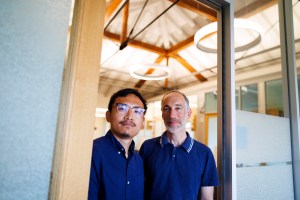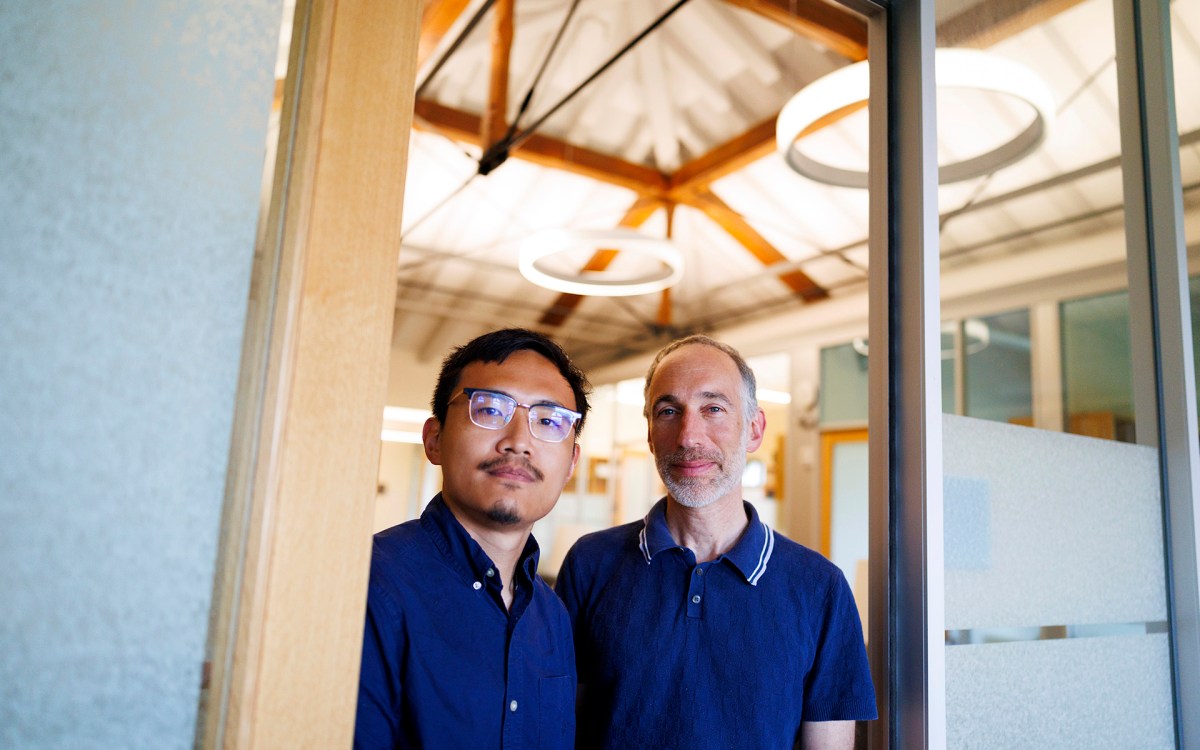The Fromm Players at Harvard present ‘Resistance and Hope’

Fromm Players concert features the Boston premiere of Russian iconoclastic composer Galina Ustvolskaya’s Symphony No. 2. Credit: classical-iconoclast.blogspot.com
Walter Bigelow Rosen Professor Chaya Czernowin’s choices of composers and works for this year’s Fromm concert centers on individuality, integrity, and artistic focus. Some of this year’s Fromm program is, clearly, ostentatiously political. The Prince Myshkins — whose inclusion on this concert is, to say the least, an innovation — feed on the Orwellian absurdity of our power structures, skewering with pointed humor and intricate songwriting. The three other composers here epitomize the single-minded pursuit of an artistic vision and the creative life, in the face of misunderstanding, mistrust, and indifference, and regardless of external, traditional notions of success. But there’s also a subtle connection here — the folk/protest song underpinnings of the Myshkins resonate with the folk-music basis of Ben Johnston’s String Quartet No. 5. That piece, incidentally, is performed here by the Kepler Quartet, which was formed in 2002 for the purpose of performing and recording Johnston’s string quartets. Their immersion in this repertoire brings unmatched breadth and richness to their interpretations.
The Fromm Players at Harvard, a professional ensemble dedicated to the performance of contemporary music, play works organized around a strong theme that add something unique to new music in Boston.
- The Prince Myshkins are a satirical songwriting/performing duo named after the protagonist of Dostoyevsky’s “The Idiot,” a holy fool whose noble but often naïve intentions are at odds with outside forces. The Myshkins’ socially conscious and technically sophisticated songwriting and theatricality of performance has its ancestry in Brecht and Weill (Tom Lehrer could be an American cousin).
- Graciela Paraskevaidis’ (1940-1917) work “algún sonido de la vida” (“any sound out of life”) seems to seek to make of two oboes and performers one event or musical source. The complex, unpredictable passing of sound from one instrument to the other, which happens frequently in the first movement, creates illusory and real overlapping and melding of the sound.
- The American composer Ben Johnston (b.1926) remained musically tied to the American vernacular traditions. Johnston wrote his Fifth Quartet in 1979; it uses as a cantus the folk tune “Lonesome Valley.” Johnston compared the structure of the Fifth Quartet to Debussy’s “Prelude to the Afternoon of a Faun.”
- Galina Ustvolskaya’s (1919-2006) Symphony No. 2, “True and Eternal Bliss!” is scored for piano with an orchestra of woodwinds, brass, and percussion, plus reciter; the composer calls the piano’s central role “almost a solo.” The reciter’s part in the Second is marked at its start with the description “A scream into space,” which is also the title of a 2005 documentary about the Dutch premiere of the symphony. In that film, Ustvolskaya spoke of the piece as being about a man sinking into oblivion and crying out to God as he submerges.
“Resistance and Hope” takes place on Saturday, March 31 at 7 p.m. at the John Knowles Paine Concert Hall, 3 Oxford St., Cambridge, Mass. Free and open to the public. Free parking in Broadway Garage, corner of Felton St. and Broadway. Please visit https://music.fas.harvard.edu for more information, or contact by phone at 617-495-2791 or via email at musicdpt@fas.harvard.edu





